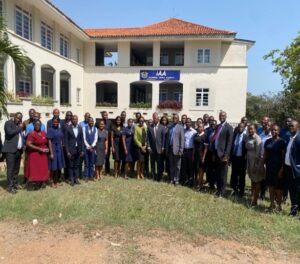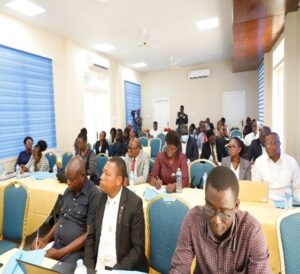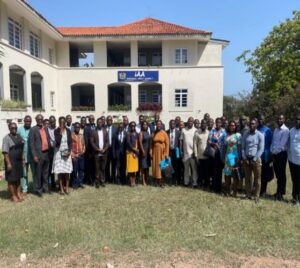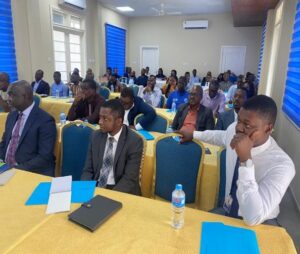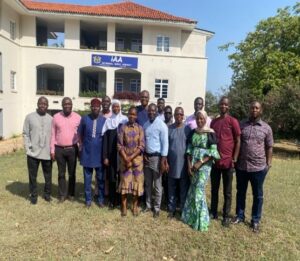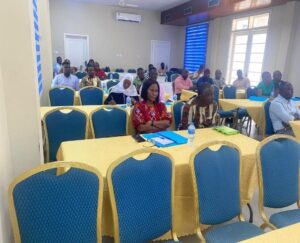The Internal Audit Agency organized a five-day workshop from the 25th to 29th November, 2024 to train public sector Internal Auditors on the new Internal Audit Charter template. The session focused on equipping participants on how to customize the Audit Charter for their respective institutions. The training catered to different categories of institutions each day. Monday and Tuesday had Ministries, Departments, and Agencies (MDAs) attending the training, Wednesday had State Interest and Governance Authority (SIGA) Institutions, Thursday and Friday had Ghana Tertiary Education Commission (GTEC) institutions and Metropolitan, Municipal, and District Assemblies (MMDAs) respectively.
The Director-General emphasized the importance of the training and highlighted key objectives. He spoke on a major occurrence in the public sector being the mainstreaming of performance audits in public service. He touched on the fact that Internal Auditors were tasked with validating the handing-over notes of their institutions. Finally, he stated that the Audit Charter is expected to be fully implemented by all institutions by 1st January 2025.
Presentation by the Director of Technical and Resource Management and Evaluation (TRME)
The Director in charge of Training, Research, Monitoring, and Evaluation (TRME), Mr. Adjetey, delivered a detailed presentation on the Global Internal Audit Standards (GIAS), which were issued in January 2024 and set to take effect in January 2025. He described the Audit Charter as a critical document akin to a constitution for Internal Audit Units. The presentation delved into the importance of standards, which serve as mandatory requirements for internal auditing, and introduced participants to the International Professional Practices Framework. This framework comprises mandatory elements, including GIAS and topical requirements, as well as supplementary global guidance. It is structured into five domains, encompassing 15 principles and 53 standards. The session focused on Domain 3, specifically Principle 6, which requires the Audit Charter to be authorized by the board, and Standard 6.2, which addresses the Internal Audit Charter. Mr. Adjetey explained that the charter acts as a blueprint for the operation of Internal Audit, granting the necessary authority to perform tasks, defining activities, and providing a measure for assessing effectiveness.
The International Professional Practices Framework (IPPF)
The content of the charter was outlined, including its purpose, mandate, authority, independence, organizational position, reporting relationships, roles, and responsibilities of Internal Audit Unit heads, the scope and types of internal audit services, and the approval process. He emphasized that the charter must be customized to suit the unique circumstances of each institution. Additionally, safeguards should be established to maintain the independence of internal auditors and prevent interference in their work.
The remainder of the sessions involved practical, hands-on guidance to help participants understand and customize the charter to align with their respective institutional needs. The training marked a critical step toward standardizing internal audit practices across various sectors, ensuring that all institutions are prepared to implement the new charter by the start of 2025.
